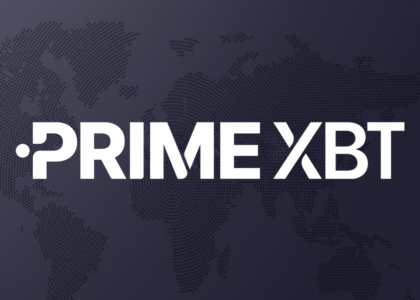Introduction
Cryptocurrency exchanges play a crucial role in the digital asset ecosystem, serving as the primary gateways for investors to buy, sell, and trade cryptocurrencies. The US has emerged as a significant hub for crypto trading, but stringent regulations and compliance requirements have shaped the landscape. This article explores the state of crypto exchanges in the US, the regulatory environment, top platforms, and future trends.
The Regulatory Landscape of Crypto Exchanges in the US
The US has some of the most well-defined yet complex regulations governing cryptocurrency exchanges. Unlike other global jurisdictions with lenient rules, US exchanges must comply with federal and state laws, ensuring consumer protection and financial security.
Key Regulatory Bodies Governing Crypto Exchanges
- Securities and Exchange Commission (SEC) – Oversees crypto assets that are classified as securities.
- Commodity Futures Trading Commission (CFTC) – Regulates crypto derivatives and futures markets.
- Financial Crimes Enforcement Network (FinCEN) – Requires crypto exchanges to comply with Anti-Money Laundering (AML) and Know Your Customer (KYC) policies.
- Office of the Comptroller of the Currency (OCC) – Oversees banking institutions involved in crypto activities.
- State-Level Regulations – Each state has specific licensing requirements, such as New York’s BitLicense, which imposes strict compliance measures.
Impact of Regulations on Crypto Exchanges
While these regulations aim to enhance security and transparency, they also create hurdles for crypto exchanges, leading some platforms to exit the US market. However, established exchanges that comply with regulations benefit from increased trust and institutional investment.
Top Crypto Exchanges in the US
1. Coinbase
Key Features:
- Regulated and publicly traded (NASDAQ: COIN)
- User-friendly interface for beginners
- Supports staking, DeFi integrations, and NFT marketplace
- Complies with SEC and FinCEN regulations
Pros: High security, strong regulatory compliance, and extensive fiat support. Cons: Higher fees compared to competitors.
2. Binance.US
Key Features:
- Lower trading fees compared to Coinbase
- Advanced trading tools and features
- Supports a variety of cryptocurrencies
Pros: High liquidity, strong security features, and diverse trading pairs. Cons: Limited features compared to Binance global due to regulatory restrictions.
3. Kraken
Key Features:
- High liquidity and deep order books
- Offers futures and margin trading
- Strong security protocols
Pros: Low fees, strong reputation, and regulatory compliance. Cons: Limited fiat deposit options compared to Coinbase.
4. Gemini
Key Features:
- Fully compliant with US regulations
- Institutional-grade security and insurance
- Supports staking and Gemini Earn program
Pros: High security, transparent operations, and regulated status. Cons: Slightly higher fees for retail investors.
5. Crypto.com
Key Features:
- Integrated with Visa cards for spending crypto
- Offers staking and DeFi integrations
- Competitive trading fees
Pros: Strong marketing presence, diverse products, and crypto rewards. Cons: Customer service issues and regulatory scrutiny.
Key Factors to Consider When Choosing a Crypto Exchange in the US
- Security Measures – Opt for exchanges with two-factor authentication (2FA), cold storage, and insurance coverage.
- Regulatory Compliance – Ensure the platform is registered with FinCEN and adheres to US laws.
- Trading Fees – Compare maker/taker fees to find cost-effective trading options.
- Available Cryptocurrencies – Choose platforms that support a wide range of digital assets.
- User Experience – A user-friendly interface and mobile compatibility enhance trading efficiency.
- Liquidity and Volume – High liquidity ensures faster execution of trades and reduced slippage.
Emerging Trends in the US Crypto Exchange Market
1. Institutional Adoption
More institutional investors are entering the crypto space, prompting exchanges to enhance their services for compliance and security. Platforms like Coinbase and Gemini are actively targeting institutional clients with custody solutions.
2. Decentralized Finance (DeFi) Integration
Traditional exchanges are gradually integrating DeFi features such as staking, lending, and liquidity pools. This trend aims to bridge the gap between centralized and decentralized trading models.
3. Rise of Regulatory-Compliant Stablecoins
Stablecoins like USDC and USDT play a crucial role in facilitating crypto transactions. As regulatory scrutiny increases, compliant stablecoins are likely to gain more traction in US-based exchanges.
4. Expansion of Crypto Derivatives
Futures and options trading are becoming more popular among US traders. Kraken and Binance.US have started offering derivatives products within regulatory limits.
5. AI and Automation in Crypto Trading
AI-driven trading bots and algorithmic trading tools are being integrated into exchanges, allowing traders to automate strategies and optimize their investments.
Challenges Facing US Crypto Exchanges
1. Regulatory Uncertainty
Despite clear guidelines, ongoing lawsuits (such as SEC vs. Ripple) highlight the evolving nature of crypto regulations. Exchanges must constantly adapt to new rulings and compliance measures.
2. High Compliance Costs
Maintaining regulatory compliance requires significant investment in legal, security, and operational infrastructure, which can be challenging for smaller exchanges.
3. Banking Restrictions
Some traditional banks remain hesitant to work with crypto businesses, making fiat deposits and withdrawals a challenge for traders.
4. Competition from Global Exchanges
US-based platforms face stiff competition from international exchanges that offer more features and lower fees. While regulatory compliance builds trust, it also limits operational flexibility.
Conclusion
The US crypto exchange market is one of the most regulated and secure in the world, offering traders and investors reliable platforms for buying and selling digital assets. Despite challenges like regulatory uncertainty and high compliance costs, the market continues to grow, driven by institutional adoption and DeFi innovations. Choosing the right crypto exchange depends on factors like security, liquidity, fees, and compliance. As regulations evolve, US-based exchanges will need to adapt and innovate to maintain their competitiveness in the global market.





